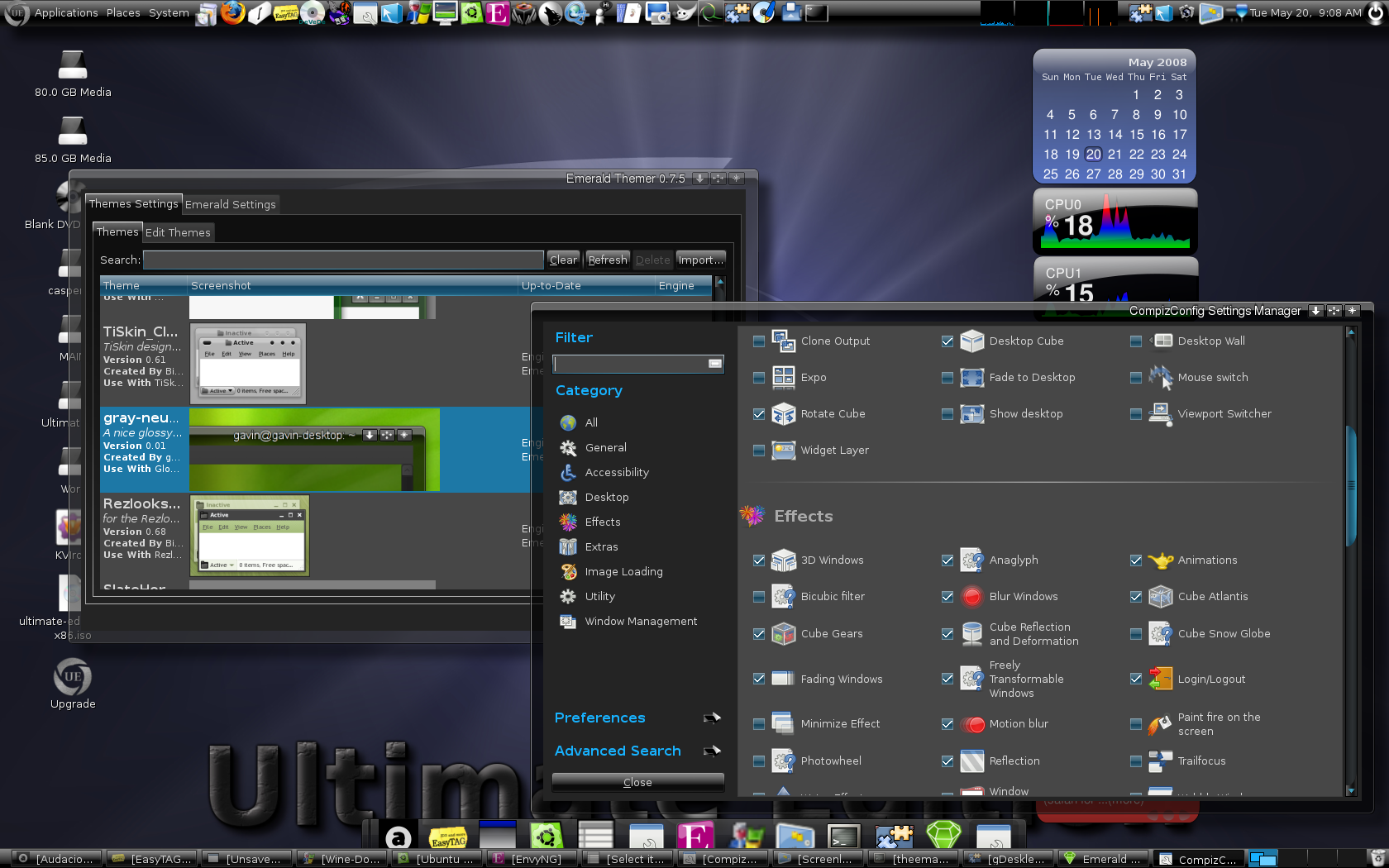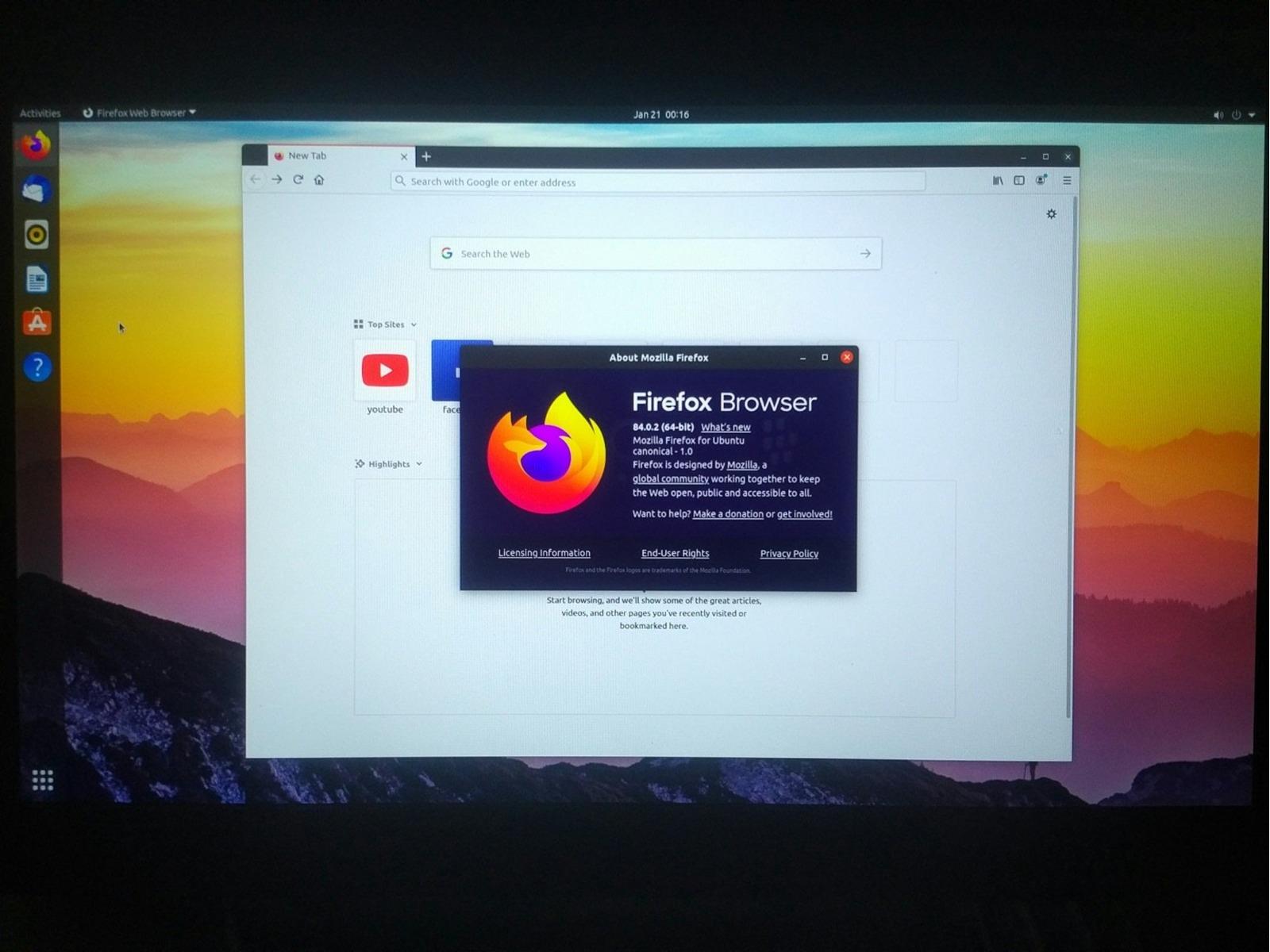A Mobile Version of the Ubuntu Operating System
More Information about Ubuntu. SLN151664 - How to Install Ubuntu Linux on your Dell PC; SLN301754 - How to Install Ubuntu and Windows 8 or 10 as a Dual Boot on your Dell PC If you have further questions about this article, contact Dell Technical Support. Ubuntu on Windows allows you to use Ubuntu Terminal and run Ubuntu command line utilities including bash, ssh, git, apt and many more. Please note that Windows 10 S does not support running this app. To launch, use 'ubuntu' on the command-line prompt (cmd.exe), or click on the Ubuntu tile in the Start Menu. Ubuntu ships with the Firefox web browser as standard, and there’s nothing wrong with that. Firefox is a great and capable browser—and it’s open-source, too. But perhaps you use Google Chrome on other platforms and want to have the same experience on Ubuntu. As a Linux based OS, Ubuntu supports a wide range of virtualization solutions. Aside from popular third-party apps, such as VirtualBox and VMWare, the Linux kernel has its own virtualization module called KVM (Kernel-based Virtual Machine). In this tutorial you will learn how to install and set up KVM on Ubuntu 20.04. Ubuntu Code of Conduct violation (rule 1) 2. Tech support question without a link (rule 2) 3. Post does not relate directly to Ubuntu (rule 3) 4. No memes or follow-ups to picture posts (rule 4).
Refreshing and easy to work with
In its current state, our OS is designed primarily for touchscreen mobile devices such as smartphones and tablet computers. Ubuntu Touch offers a completely refreshing approach to the mobile experience. Thanks to the intuitive and clean interface, members of the community report a very 'natural' experience. With a gentle swipe from the edge of the screen, you have access to all of the device's apps, tools and settings. There are no accidental button pushes or hard-to-reach dungeons of your mobile device: Everything is just a swipe away. This unique operating system will help you stand out in a crowd with a new fashion in mobile technology.The Ubuntu TouchApps
Ubuntu Touch offers everything you need. All kinds of applications are available. Apps for communication, messaging, music, administration, navigation, tools, games and a lot more.
Ubuntu On Virtualbox
 Ubuntu Touch comes pre-installed with a set of important and solid core apps that cover your daily needs. This includes everything you expect from a phone, like a dialer, contacts and calendar, but since it's Linux family, the OS comes with a fully-featured file browser and terminal (including essential command-line applications) as well.
Ubuntu Touch comes pre-installed with a set of important and solid core apps that cover your daily needs. This includes everything you expect from a phone, like a dialer, contacts and calendar, but since it's Linux family, the OS comes with a fully-featured file browser and terminal (including essential command-line applications) as well.Please take a look in the OpenStorefor the complete list of apps which are available at the moment.
For more information click here!
Convergence
Imagine linking your mobile device to a monitor, mouse and keyboard and having it instantly transformed into a desktop experience. With Ubuntu Touch you only need one device.Throughout the entire history of the project, one theme has continued as an exciting thread and hope – Convergence. In its current state, our OS is designed primarily for touchscreen mobile devices such as smartphones and tablet computers, however the goal of Convergence is expected to bring Ubuntu Touch to Laptop/Desktops and TVs for a completely unified experience. Ubuntu Touch focuses on hardware minimalism and efficiency. The idea of Convergence is being able to pack a mobile device in your pocket and then simply connect to the screen/hardware of your choice and have it seamlessly integrated with the external peripherals - a desktop computer in your pocket. Benefits of Convergence are endless such as, reduced landfill wastage, saved money, higher security and the convenience of truly mobile computing.
Privacy Ensured
Although Big Brother and others in the world may wish to spy on you and steal your personal data - don't worry. With Ubuntu Touch - a safer system that respects your privacy - they will have nothing to see. Ubuntu Touch keeps you secure because most unsafe parts are blocked by default; the only way that the peepers and creepers can get a peek is if you invite them. We've got your back.
No Backdoors
Ubuntu is an open source software operating system. This means that everyone has access to the source code and change, distribute or copy it. That makes it impossible to install software backdoors.
The Ubuntu Touch OS does not depend on the cloud and is also virtually free of viruses and other malware that can extract your data.
Ubuntu Touch Devices
Ubuntu On Raspberry Pi
Choose your device
WhomakesUbuntuTouch
Read all about the UBports Community
Get UbuntuTouch
Install UT now
- Ubuntu Tutorial
- Ubuntu Useful Resources
- Selected Reading

Ubuntu is a Linux-based operating system. It is designed for computers, smartphones, and network servers. The system is developed by a UK based company called Canonical Ltd. All the principles used to develop the Ubuntu software are based on the principles of Open Source software development.
Features of Ubuntu
Following are some of the significant features of Ubuntu −

Ubuntu On Raspberry Pi
The desktop version of Ubuntu supports all the normal software on Windows such as Firefox, Chrome, VLC, etc.
It supports the office suite called LibreOffice.
Ubuntu has an in-built email software called Thunderbird, which gives the user access to email such as Exchange, Gmail, Hotmail, etc.
There are a host of free applications for users to view and edit photos.
There are also applications to manage videos and it also allows the users to share videos.
It is easy to find content on Ubuntu with the smart searching facility.
The best feature is, it is a free operating system and is backed by a huge open source community.
Release Cycle of Ubuntu
Every year there are 2 releases of Ubuntu, one in April and one in October, from Canonical. The version number normally denotes the year in which the software was released. For example, version 14.04 specifies that it was released in the year 2014 and in the month of April. Similarly, the version 16.04 specifies that it was released in the year 2016 and in the month of April. The April build every year is the more stable build, while the October build does a lot of experimentation on new features.
The official site for Ubuntu is https://www.ubuntu.com/
The site has all information and documentation about the Ubuntu Software. It also has the download links for both the server and desktop versions of Ubuntu.